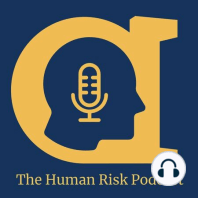41 min listen

Professor Elizabeth Sheedy on Behaviour in Banking
Professor Elizabeth Sheedy on Behaviour in Banking
ratings:
Length:
63 minutes
Released:
May 9, 2020
Format:
Podcast episode
Description
Why do people who work in banks engage in bad behaviour? That's the question my guest on this episode, Professor Elizabeth Sheedy of Macquarie University in Sydney, specialises in researching. She is a risk management expert based in the Department of Applied Finance and since 2012 her research focus has been on Risk Governance, Culture and Remuneration in Financial Institutions. So she's ideally placed to explore why there appears to be such an issue with behaviour in Financial Services. In our discussion, we talk about why bad behaviour occurs and what we can do to mitigate it. What are the factors that drive people to engage in it? Would it make a difference if the industry were more diverse?You'll find links to her research below.For more on Human Risk, including the Newsletter and Video Channel. visit www.human-risk.com.This major study of risk culture in Australian and Canadian banks, highlights the issue of ‘avoidance’ culture in predicting poor behaviour: https://onlinelibrary.wiley.com/doi/abs/10.1111/corg.12200 How both remuneration and culture predict compliance behaviour: https://www.sciencedirect.com/science/article/pii/S0378426619301864What is the potential of compensation deferrals to temper bad behaviour? Will people gravitate towards the pay structures they prefer? Will the nature of the workforce change if deferrals are introduced? https://papers.ssrn.com/sol3/papers.cfm?abstract_id=3535347This research explores the "Lehman Sisters" hypothesis, which posited that had Lehman Brothers been run by women, that things might have turned out differently. The research suggests the opposite; it turns out senior females in banks are pretty similar to their male counterparts.: https://www.emerald.com/insight/content/doi/10.1108/MF-11-2017-0465/full/html?casa_token=Sw-pGQTHpz4AAAAA:fu38Nld8uqZWES3N5koN1byos6t44SKVRrURunfUD9DWgLIHZlZpBqVDSMfR7eGbS1_-dpG3jmim_gVGRYuyo7qI1r1MQw1b0YoHvloXIVh4eZVllUvp
Released:
May 9, 2020
Format:
Podcast episode
Titles in the series (100)
Ben Cattaneo on All Things Risk: In this episode, I speak with Ben Cattaneo. Ben is a risk professional who is also the host of the All Things Risk podcast. We ended up having a rather longer than planned conversation, so I've split it up into several parts. In this first part, we... by The Human Risk Podcast